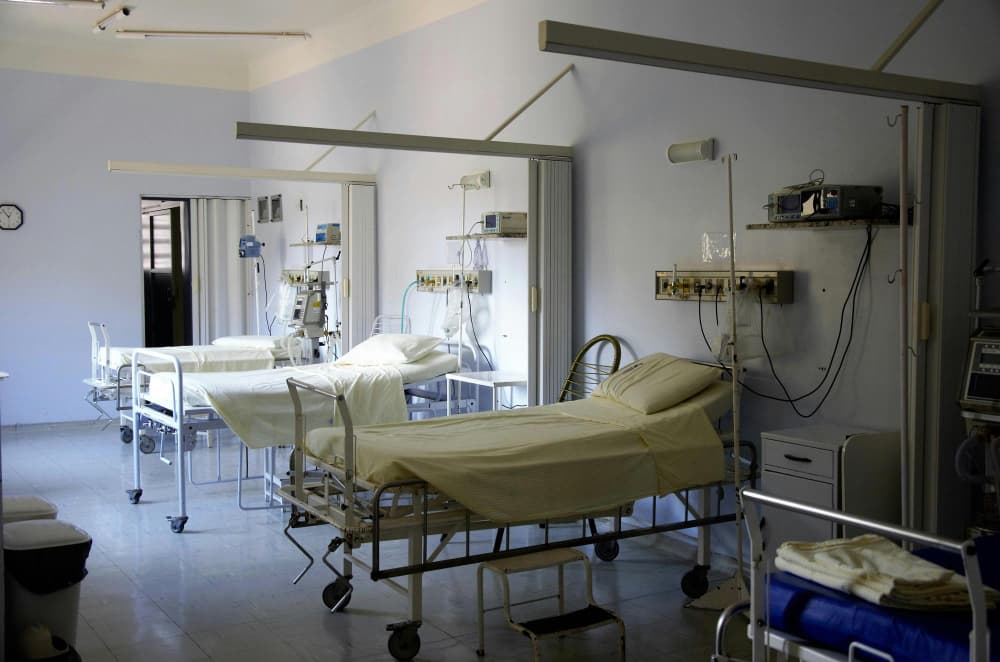We're loading the full news article for you. This includes the article content, images, author information, and related articles.
A nationwide crackdown by medical regulators exposes a dangerous network of illegal health facilities, raising urgent questions about patient safety and regulatory enforcement in Kenya.

A sweeping nationwide crackdown by the Kenya Medical Practitioners and Dentists Council (KMPDC) has resulted in the closure of hundreds of unlicensed health facilities, exposing a perilous shadow healthcare system operating outside the law. In a gazette notice dated Friday, August 29, 2025, KMPDC Chief Executive Officer Dr. David Kariuki confirmed that at least 544 health institutions had been shut down for operating without proper registration or licensing. This enforcement action followed a series of inspections that revealed widespread non-compliance with national health standards. Just days prior, on Thursday, August 28, 2025, the council had announced the closure of 158 facilities in Nairobi alone after inspecting 288 premises in the capital. The council also downgraded 25 other facilities for failing to meet required operational standards.
The reasons cited for the closures paint a grim picture of the risks faced by unsuspecting Kenyans. According to Dr. Kariuki, many of the shuttered clinics were staffed by unqualified and unlicensed practitioners, lacked essential infrastructure such as pharmacies or laboratories, and suffered from poor sanitation and unsafe medical waste disposal. “The Council shall not allow quacks and unlicensed persons to endanger the lives of Kenyans,” Dr. Kariuki stated on August 25, 2025, emphasizing that such conditions pose a direct threat to public safety. The crackdown, conducted in collaboration with county governments, is guided by the Inspections and Licensing Rules of 2022, which mandate regular inspections and annual license renewals to ensure accountability and continuous improvement in healthcare delivery.
The recent closures are part of a larger, ongoing effort to purge the country of illegal medical practices. In May 2025, the KMPDC had already shut down 511 private facilities across Mandera, Nairobi, and Wajir counties and arrested 31 individuals for operating illegally. An investigation by the Daily Nation, published on Tuesday, November 4, 2025, revealed that despite these efforts, some deregistered facilities continue to operate behind closed doors, treating patients and perpetuating a cycle of misdiagnosis and malpractice. The consequences for patients can be severe, ranging from delayed treatment to sepsis and even death. The scale of the challenge was starkly highlighted in a July 2024 report by Auditor General Nancy Gathungu, which revealed that over 9,000 of Kenya's 16,527 registered health facilities—approximately 56%—were operating without a valid license in 2023. Worryingly, the report noted that a majority of these unlicensed entities were government-owned dispensaries and hospitals.
Under the Medical Practitioners and Dentists Act (Cap 253), all health institutions in Kenya must be registered and licensed annually by the KMPDC to ensure they meet professional and safety standards. The law stipulates severe penalties for non-compliance. Individuals found practicing in an unregistered facility face a fine of up to KSh 5 million, a prison term of up to five years, or both. Health facility managers who knowingly employ unlicensed practitioners face even steeper penalties, including fines of up to KSh 10 million. The Council of Governors Health Committee, chaired by Tharaka Nithi Governor Muthomi Njuki, has also called for a joint crackdown with the Ministry of Health, citing numerous reports of substandard care and medical negligence leading to deaths in such facilities. Governor Njuki highlighted the dangerous practice of licensed medics leasing their credentials to unqualified individuals, allowing illegal clinics to operate under a guise of legitimacy.
The KMPDC has urged the public to remain vigilant and verify the registration status of any health facility or practitioner before seeking services. The ongoing inspections and public notices of closures are part of a broader strategy to enhance transparency and empower patients. However, the persistence of these illegal clinics, particularly in underserved areas, points to deeper systemic issues, including gaps in access to affordable and legitimate public healthcare. As regulators intensify their enforcement efforts, the challenge remains to not only close illegal facilities but also to ensure that all Kenyans have access to safe, reliable, and legally compliant healthcare services, a goal the government hopes to advance through the new Social Health Authority (SHA).
Keep the conversation in one place—threads here stay linked to the story and in the forums.
Sign in to start a discussion
Start a conversation about this story and keep it linked here.
Other hot threads
E-sports and Gaming Community in Kenya
Active 9 months ago
The Role of Technology in Modern Agriculture (AgriTech)
Active 9 months ago
Popular Recreational Activities Across Counties
Active 9 months ago
Investing in Youth Sports Development Programs
Active 9 months ago
Key figures and persons of interest featured in this article